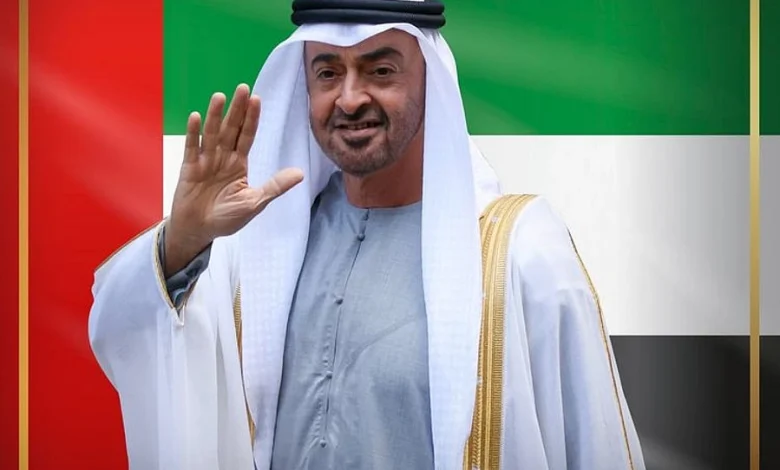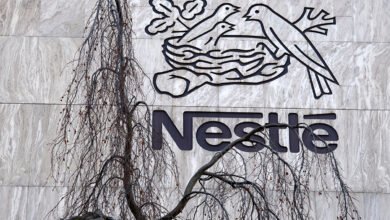
Global Relevance — the UAE as a model for pluralism and soft power.
The UAE now ranks 10th globally in the Global Soft Power Index 2025. This shows the country’s growing influence worldwide. The nation has come a long way from being a regional player to become a global soft power leader. UAE’s approach to international relations has not only lifted its position but also made it a role model for pluralism and soft power.
UAE’s rise in global soft power rankings tells an impressive story. The country moved up from 18th place in 2020 to join the top 10 by 2023, and kept this elite position through 2025. Brand Finance’s Global Soft Power Index reviews 193 countries based on feedback from 173,000 business leaders, policymakers, and civil society members. UAE stands out in several areas – ranking 4th in ‘Future Growth Potential’, 7th in ‘A strong and stable economy’, and 9th in ‘International Relations’. The country has also become a key player in global cultural diplomacy by using its rich heritage and modern outlook to promote international understanding.
The historical roots of UAE’s soft power
Image Source: Gulf News
The UAE’s soft power strategy dates back to its 1971 formation. Sheik Zayed bin Sultan Al Nahyan created what would later become a model for international influence without using force.
Sheik Zayed’s vision and early diplomacy
Sheik Zayed knew a small Gulf nation could gain substantial influence by building strategic relationships rather than military power. His approach focused on three main principles: respect for sovereignty, peaceful conflict resolution, and mutual cooperation benefits. Under his leadership, the UAE built diplomatic ties with many countries while keeping a balanced position among regional powers.
Sheik Zayed’s diplomatic philosophy focused on:
- Respect for cultural and religious diversity
- Open dialog across ideological divides
- Economic cooperation as a path to peace
This foundation helped position the UAE as a mediator and stabilizing force in regional affairs, especially when neighboring states faced political unrest.
Formation of humanitarian foreign policy
The UAE shaped its humanitarian foreign policy approach during the 1980s and 1990s. The country started by helping Arab and Muslim communities before expanding worldwide. The creation of organizations like the Abu Dhabi Fund for Development provided structured ways to distribute aid internationally.
The UAE’s humanitarian strategy stayed clear of political conditions. Instead, it focused on practical help in education, healthcare, and infrastructure. This approach built goodwill in a variety of cultural and political settings, particularly where Western aid faced doubt.
Original alliances and regional solidarity
The UAE’s early regional partnerships showed careful diplomatic planning. The country built strong ties with Gulf allies while developing relationships with Western powers and rising Asian economies. The UAE became a bridge between East and West by using its strategic location and cultural connections.
Regional unity remained crucial, but the UAE stood out with its open economic policies and religious moderation. This unique approach laid the groundwork for the country to emerge as a global soft power leader. Through thoughtful diplomacy and consistent humanitarian work, the UAE turned its geographic limitations into advantages.
How pluralism shaped UAE’s global image
Image Source: The National News
Pluralism serves as the life-blood of UAE’s international reputation and sets the nation apart in a region known for religious homogeneity and cultural uniformity. The country’s embrace of diversity has become a powerful tool in its soft power arsenal that builds connections across cultural and political divides.
Policies of religious moderation
UAE positions itself as a beacon of moderate Islamic practice while honoring other faith traditions. This philosophy shows through dedicated spaces for non-Muslim worship, including churches, temples, and synagogues. The country has also taken firm steps against religious extremism through educational reforms and interfaith dialog initiatives.
Religious moderation shapes legal frameworks too. UAE implements progressive legislation that balances Islamic principles with contemporary global norms. These policies are part of a careful strategy to counter regional perceptions of religious intolerance and enhance the nation’s appeal as a global partner.
Hosting diverse communities
UAE stands unique in its demographic diversity, with expatriates making up about 88% of the population. This multicultural makeup creates a social environment that proves the country’s ability to manage diversity peacefully.
The government develops this diversity through immigration policies that draw global talent from various sectors. Cultural festivals that celebrate different nationalities have become highlights of UAE’s social calendar and reinforce its position as a global crossroads where traditions flourish together.
Promoting peaceful coexistence
UAE does more than just accommodate diversity – it champions intercultural understanding through various initiatives. The Abrahamic Family House in Abu Dhabi, which houses a mosque, church, and synagogue in one complex, represents this steadfast dedication to interfaith harmony.
The Ministry of Tolerance, established in 2016, strengthens these efforts and leads programs that foster mutual respect across religious and cultural boundaries. Through educational programs focused on tolerance and global citizenship, UAE prepares future generations to thrive in an increasingly connected world.
Cultural diplomacy and global engagement
Image Source: Wallpaper Magazine
Cultural exchange is the life-blood of UAE’s modern soft power strategy that enables the nation to showcase its values globally. The country has built its reputation as a cultural hub through mutually beneficial alliances.
Louver Abu Dhabi and global art exchange
The Louver Abu Dhabi, a 16-year old partnership with France, stands as UAE’s greatest achievement in cultural diplomacy. This universal museum has drawn five million visitors since 2017. It showcases about 6,000 artworks from 313 artists representing a variety of cultures. The institution takes a unique approach by arranging exhibits chronologically instead of geographically to highlight human connections across civilizations.
Expo 2020 and COP28 as soft power tools
Expo 2020 Dubai reshaped the scene of UAE’s global influence and pushed the country into the top 10 of the Global Soft Power Index. The event drew over 24 million visitors with 30% international attendance. It added AED 75.64 billion to UAE’s Nation Brand Value. COP28 brought together more than 198 parties and 85,000 participants. This success strengthened UAE’s role as a global convener.
Education and youth exchange programs
UAE runs many student exchange programs through partnerships with prestigious institutions like the Fulbright Program. These exchanges encourage cultural sensitivity and global awareness while creating lasting international bonds.
Tourism and international branding
UAE’s Tourism Strategy 2031 wants to increase tourism’s GDP contribution to AED 450 billion. The country positions itself as a leading global destination. Cultural experiences drive tourism in emirates of all sizes. Dubai’s tourism sees 25.5% of its demand coming from cultural activities.
Soft power in action: UAE’s global contributions
The UAE proves its soft power through tangible global contributions that tackle urgent international challenges.
COVID-19 humanitarian response
The UAE showed remarkable humanitarian leadership during the COVID-19 pandemic. The nation delivered over 2,250 tons of medical supplies to 136 countries. This vital support reached more than 2.5 million healthcare professionals worldwide. The UAE-developed “Wellness Pass” initiative made safe travel possible again. Abu Dhabi’s Hope Consortium proved the nation’s crisis management expertise by distributing over 260 million vaccine doses to 60 countries.
Renewable energy and IRENA leadership
The UAE stands at the vanguard of global sustainability through its role as host to the International Renewable Energy Agency (IRENA) headquarters in Abu Dhabi. Masdar City represents a groundbreaking carbon-neutral development project. UAE-backed renewable energy projects now benefit 40 countries across five continents. These programs advance environmental goals and strengthen the nation’s reputation as an innovative global partner.
Mediation and peace-building efforts
The UAE has launched several crucial diplomatic initiatives. The nation helped broker peace between Ethiopia and Eritrea, ending their 20-year conflict. The historic Abraham Accords marked a turning point in Middle East relations. These achievements show how smaller nations can help create dialog between major powers. The UAE now serves as a trusted mediator in complex regional disputes.
UAE has climbed to the 10th position in the Global Soft Power Index 2025. This achievement shows how the nation turned its strategic vision into real global influence. Sheik Zayed’s diplomatic principles are the foundations of a soft power approach that grows stronger each year. The country stands out in the region through its religious moderation, cultural diversity, and peaceful coexistence.
Cultural diplomacy plays a key role in UAE’s international outreach. The nation brings global stakeholders together through landmark projects like the Louver Abu Dhabi, Expo 2020, and COP28. These initiatives showcase the country’s values worldwide. Educational exchanges and tourism growth create multiple channels to project soft power effectively.
UAE proves its soft power works through practical global contributions. The nation stepped up with substantial humanitarian aid during the COVID-19 pandemic. Its leadership in renewable energy and skilled mediation efforts show a country that achieves far more than its size suggests in tackling international challenges.
Other nations can learn valuable lessons from UAE about improving their global standing through non-coercive means. Small states gain significant influence when they combine cultural openness, diplomatic skill, and humanitarian work strategically. This Gulf nation’s rise from a regional player to a global soft power leader sets an example for countries in today’s complex digital world.






